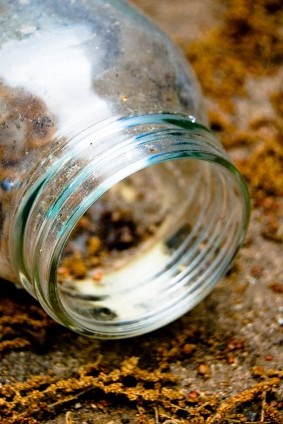 Food security is becoming more of a pressing issue due to recent economic pitfalls and droughts plaguing different parts of the world and destroying vital crops in the process. As preppers, we are looking at different events that could effect our well being. We want to be self reliant and care for our own needs. Having a long term food source is essential to that self reliance and storing seeds is the solution.
Food security is becoming more of a pressing issue due to recent economic pitfalls and droughts plaguing different parts of the world and destroying vital crops in the process. As preppers, we are looking at different events that could effect our well being. We want to be self reliant and care for our own needs. Having a long term food source is essential to that self reliance and storing seeds is the solution.
Finding the perfect seeds to store takes a bit of time and effort on your part to ensure you have a dependable long term food source. Essentially when a person dries out the seeds, it basically stops the growth process until it is introduced to the right elements again. In a previous article on seed collecting, I discussed how important it is to diversify your seeds and how to prepare them for storage.
After your seeds have been collected you want to ensure the seeds are dried well before you store them. A 10-year storage life can be achieved by drying seed to less than 8 percent moisture. Seeds should be stored in a cool, dry area of the home as moisture and heat will cause the seeds to spoil. A way to circumvent this issue is to store seeds in an airtight container with a tight fitting lid to keep out moisture. To make sure the containers are airtight, you can fill up the edges around the lids with wax or grease. Mason jars are commonly used, but ammo cases can be used to store seed as well. When using this method, drop a desiccant (silica or moisture absorber) into the case and close.
Tips For Keeping Seeds Airtight
Follow these tips on keeping the container airtight:
- If using a Mason jar, melt paraffin or candle wax and turn the jars upside down and dip them in it to make an airtight seal around the lid. Another method is to dip a piece of cloth in hot wax and drape it over the opening of the container to seal it.
- Adding desiccant pouches will prevent moisture from destroying the seeds. Using freshly toasted grains of rice, wheat, corn, or toasted dried peas is another method that soak up any access moisture. Toast the rice, wheat or maize grains or dried peas by heating them slowly and moving them around continuously in a shallow pan over your stove. They should be completely dried out, but not burnt.
- You can make a cloth bag for the toasted grains so that they will not mix with the seed. Fill the cloth bag with toasted grain, and then put it in the container with the seed. Put about twice as much toasted grain in the container as seed. This method would be best when storing large seeds.
- Ensure stored containers are labeling properly with the seed variety, growing instructions, and date. This will come in handy when using the seeds the next year.
- Paper envelopes or bags are a good way of storing seeds as well. This method allows for good air circulation and prevents “sweating.” Once the seeds are sealed in the envelopes, place them in air tight container. Add a bag of silica or powdered milk to absorb any excess moisture.
Keep Insects Out
Making sure the containers are airtights protects the seed for it’s next use as well as keeps insects from destroying the seed.
Tips On Keeping Out Insects
- Add five millilitres (one tablespoon) of vegetable oil, such as African palm oil, crude cottonseed oil, coconut palm oil, or peanut oil, to one kilogram of well-dried vegetable or grain seeds. Shake the seed and oil together in a jar for five minutes until the oil lightly covers all the seeds. Then store the seed in airtight containers in a cool place.
- Adding ashes to your seed storage is another way of reducing the insect problem. First remove all the pieces of burnt wood from the ash so that only dust remains. Mix the ash dust with the seeds so that the seeds are well coated. Add 1/5 kilogram (200 grams) of fine ash to every kilogram of seed.
Summing Things Up
Storing seeds is essential for your long term preparation and food security. Getting in the habit of growing heirloom varieties and storing their viable seeds will ensure you have a back up food source if a long term disaster occurs.
To learn more about seed collecting and what the right types of seeds to store.
This article was originally published at Ready Nutrition™ on October 12th, 2009






